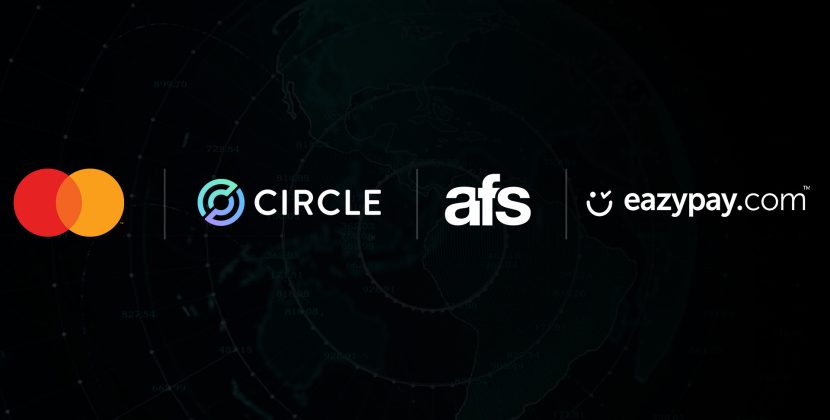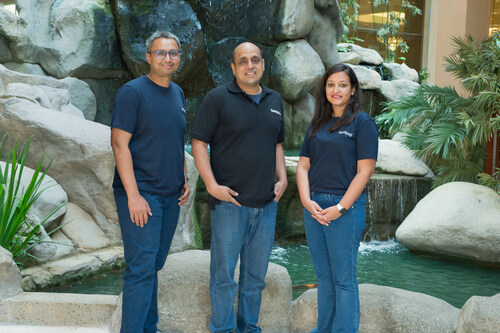
Mastercard and Circle have deepened their partnership to enable USDC and EURC settlement for acquirers in the Eastern Europe, Middle East, and Africa (EEMEA) region, starting with Bahrain’s Eazy Financial Services and Bahrain’s Arab Financial Services, regulated by the Central Bank of Bahrain and licensed by the Central Bank of Egypt and the Central Bank of UAE.
In 2022, Bahrain EazyPay, payments solution provider, partnered with Binance’s Binance Pay to launch a regulated and approved crypto payments service offering in the Kingdom.
As per the press release, the move will empower acquiring institutions to get their settlement in USDC or EURC – fully-reserved stablecoins issued by regulated affiliates of Circle, which they can then use to settle with merchants and help pave the way for a new era of efficient and trusted digital trade across emerging markets. This builds upon existing efforts between Circle and Mastercard in the region on crypto card solutions, such as Bybit and S1LKPAY, which use USDC to settle transactions.
“This is a key move for Mastercard. Our strategic goal is to integrate stablecoins into the financial mainstream by investing in the infrastructure, governance, and partnerships to support this exciting payment evolution from fiat to tokenized and programmable money. Through our expanded partnership with Circle, we are taking bold steps in integrating their innovative use across our global network. We know that trust is essential to scale, and we are proud to play a leading role by applying our decades of experience in security and compliance to the stablecoin space,” said Dimitrios Dosis, president, Eastern Europe, Middle East, and Africa, Mastercard.
“Expanding USDC settlement across Mastercard’s vast network of acquirers in Eastern Europe, the Middle East, and Africa is a pivotal step toward truly borderless, real-time commerce. Our expanded partnership with Mastercard will enable wider reach, global access, and scaled impact, so that USDC can become as ubiquitous as traditional payments. Together with Mastercard, we are advancing the role of stablecoins as a foundational tool for everyday financial activity worldwide,” said Kash Razzaghi, Chief Business Officer at Circle.
“As the first acquirer in the region to pioneer USDC stablecoin settlement, we are delivering a strategic and transformative solution. This innovation provides the future-ready infrastructure our clients need to stay competitive in an era of continuous market transformation. The new capability directly solves a key market need for greater liquidity and operational efficiency, significantly reducing the friction traditionally associated with high-volume settlements. Our partnerships with Mastercard and Circle are foundational to the offering, ensuring our clients can confidently embrace digital asset innovation within a framework of security and regulatory compliance,” said Samer Soliman, CEO, AFS.
“This collaboration with Mastercard and Circle to enable USDC settlement aligns with our mission to deliver faster, more secure, and more efficient payment solutions to our clients. This milestone sets a new standard for digital settlement in the region and reflects our commitment to driving financial innovation that meets the evolving needs of merchants and consumers alike.,” said Nayef Al Alawi, Founder, MD & CEO, Eazy Financial services.
Along with USDC, Mastercard supports a growing portfolio of regulated stablecoins from issuers around the world, including Paxos’ USDG, Fiserv’s FIUSD and PayPal’s PYUSD.
The announcement comes a month after the Central Bank of Bahrain launched its stablecoin regulations. The Central Bank issued the full stablecoin regulation on July 2nd 2025, offering licenses to stablecoin issuers, custodians, for fiat backed stablecoins that could be either in Bahraini Dinar or United States Dollars or any other fiat currency acceptable to the CBB.
Additionally, the Central Bank of Bahrain is allowing stablecoin issuers to issue yield bearing stablecoins which pay passive returns to its clients only from either interest or rewards ( for Sharia compliant stablecoins) which is earned from the investment of the reserve assets.
Also regulated are sharia compliant stablecoins. However all stablecoin issuers will need to meet requirements set by the Central Bank.










